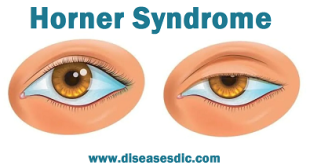Hyperpigmentation – Definition
Hyperpigmentation refers to areas of skin where an excess of melanin has been produced and formed deposits, causing skin patches that appear darker than the surrounding skin. Common skin areas that experience hyperpigmentation or dyschromia are the face, arms, and hands. Age spots, liver spots, freckles, sun spots, melasma, and any typical dark or brown spots in the skin are examples of hyperpigmentation.
Hyperpigmentation
Types
There are three main types of hyperpigmentation,
Epidermal: Light brown spots, not as dense as dermal.
Dermal: Deep brown spots on the skin, some may appear ashen-grey and quite dense and solid.
Mixture: A mixture of epidermal and dermal, presenting as dark brown spots.
Causes of Hyperpigmentation
Common causes of skin hyperpigmentation include:
- Sun exposure
- Hormonal changes
- Heredity
- Acne
- Botched skin treatments
In situations where hyperpigmentation is caused by acne, botched skin treatment, or some other cause of skin inflammation, it is known as PIH, or post-inflammatory hyperpigmentation. Typically, hyperpigmentation is a harmless skin condition, however if moles or other possible signs of skin cancer appear, they should be checked by a dermatologist.
Risk factors
Skin types that inherently have more melanin, or easily respond with melanin have higher risk for discolouration. However, anyone can be susceptible to abnormal pigmentation.
Symptoms of Hyperpigmentation
Darkened areas on your skin are the sole symptom of hyperpigmentation. These areas may be localized on your face or hands, or may even cover your entire body.
Diagnosis and test
A Wood Lamp is used to analyze the areas of your skin that have developed hyperpigmentation. A Wood Lamp emits black light that allows the doctor to see any fluorescence a sign of hyperpigmentation.
Treatment and medications
IPL (Photofacial) – Treatment with intense pulsed light, or a Photofacial, is frequently recommended by doctors to treat hyperpigmentation. However, improperly administered IPL treatment can make hyperpigmentation worse, so choose your doctor carefully.
Chemical peel – A TCA peel or deeper phenol peel are also used to treat hyperpigmentation. Great care should be taken though as pigment irregularities and scarring can occur if not done by an experienced clinician with close follow-up.
Laser peel – A variety of laser resurfacing treatments may be performed to reduce hyperpigmentation. CO2 lasers and fractional lasers are popular choices for skin resurfacing.
Topical skin lightening products – Products containing skin lightening ingredients, such as hydroquinone, retinoids, kojic acid, and Vitamin C are often used to reduce hyperpigmentation.
Prevention
Most hyperpigmentation is caused by excessive sun exposure, which means the most important prevention technique is to limit sun exposure, wear sunscreen lotion, and use protective clothing when you are in the sun. There is also an oral sun protectant available called Sunsafe Rx that is made with natural ingredients that have been shown to help prevent hyperpigmentation.
Other modes of prevention include:
- If you see dark spots developing, immediately begin using brightening products from the drugstore. Look for creams that contain kojic acid, licorice root, pine tree bark extract, or vitamin c as all of these ingredients inhibit the production of tyrosinase: an enzyme that is responsible for the development of melanin.
- Your skin is sensitive, and it will react to picking and scratching. If you notice a pimple, blackhead, or insect bite on your skin, don’t pick at it. Manipulating these spots will increase inflammation and increase the risk.
- Get regular skin checks by a qualified dermatologist. Regardless of whether or not you see dark spots on your skin, scheduling regular skin checks with your dermatologist will help you to quickly curb any skin darkening with a prescription–like hydroquinone.
- If you purchase over the counter agents to lighten your skin, be sure they contain other ingredients that will benefit your skin such as hyaluronic acid, glycerin, and retinol–all of which encourage cell turnover.
- Individuals who are prone to dark spots on their skin should address issues as soon as they arise. Acne should be immediately treated with acne medication, and insect repellent should be used to prevent insect bites. Use sunscreen lotion if needed, but make it a priority to say out of the sun as much as possible.
- When spending time in the sun, wear a hat and clothing with good coverage to limit the exposure of your skin to intense UV rays.
- Take Sunsafe Rx: an antioxidant nutritional supplement that helps prevent sun damage. Just one capsule per day provides natural, healthy, anti-aging protection from UV rays. You can still also use sunscreen lotion when needed, but Sunsafe Rx provides full-body coverage all the time—even when you’re not using sunscreen.
 Diseases Treatments Dictionary This is complete solution to read all diseases treatments Which covers Prevention, Causes, Symptoms, Medical Terms, Drugs, Prescription, Natural Remedies with cures and Treatments. Most of the common diseases were listed in names, split with categories.
Diseases Treatments Dictionary This is complete solution to read all diseases treatments Which covers Prevention, Causes, Symptoms, Medical Terms, Drugs, Prescription, Natural Remedies with cures and Treatments. Most of the common diseases were listed in names, split with categories.








very good information
I need any other medicine instead of sunsafe RX which will be easily available around the world
Generally glycolic acid cream and kojic acid dipalmitate are preffered for hyperpigmentation. But before use of those creams consult doctor.
is there any medicine to be taken orally to reduce the dark spots on my face?
yes, it’s available. please consult a doctor to get the medicines for the treatment of dark spots.
Sir my face is covered with the pigmentation. I have used lots of thing. Bt there is no effect. Please suggest me best combination of peel for me. I do not want pigmentation again my face.
How many cost of this process.
Please consult a doctor for a better prescription.
I used only nivea cream,,I used also facial scrub,,,but still ,,too much brown dark spots,,please advice me if what other products can cure my dark spots